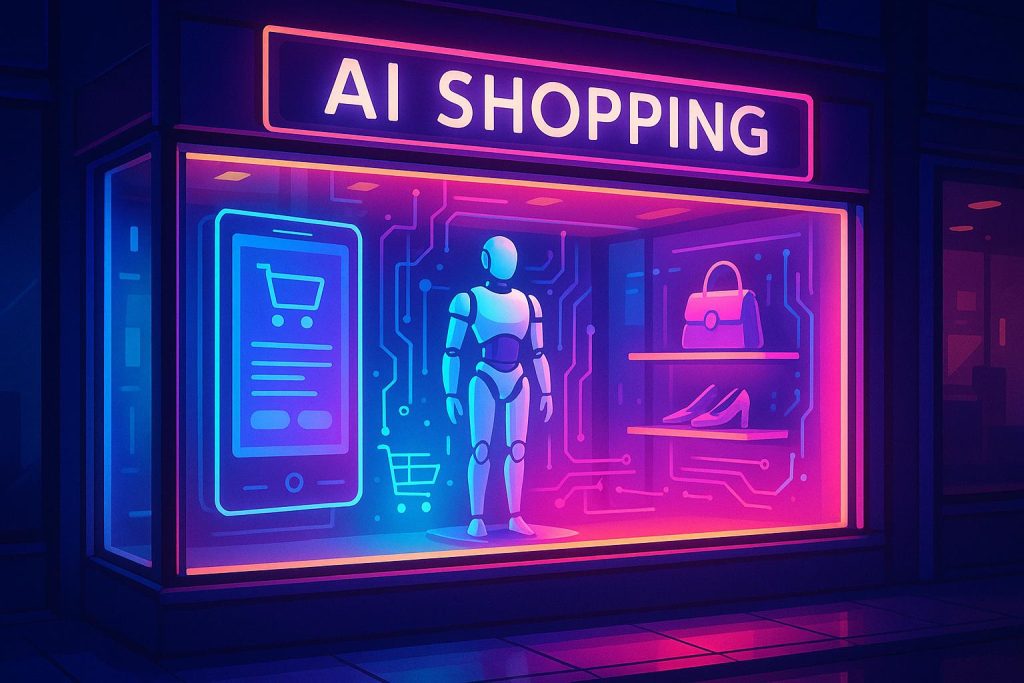Listen to the article
The global retail AI market continues its rapid growth, driven by major players like Walmart and Amazon adopting new technologies to enhance customer experience and supply chain efficiency amid evolving consumer demands and regulatory challenges.
The global artificial intelligence (AI) market in retail has experienced impressive growth, reaching an estimated value of $5.5 billion in 2022 and projected to surge to $55.4 billion by 2030. This growth, underpinned by a compound annual growth rate (CAGR) of 34.2% from 2024 to 2031, reflects the widespread adoption of AI technologies such as machine learning, computer vision, natural language processing, and predictive analytics. Retailers are leveraging these tools to enhance inventory management, boost customer engagement, and streamline supply chain operations, driven by increasing consumer demands for personalised, efficient, and seamless shopping experiences across both physical and online channels.
In the United States, leading retail giants have spearheaded several AI-driven initiatives in 2025 to capitalise on these trends. Walmart, for example, has been particularly active, launching AI-powered demand forecasting and inventory management systems across its stores to reduce stockouts and enhance operational efficiency. The company’s focus on AI-enabled robotics was marked by the sale of its robotics unit to automation firm Symbotic for $200 million early in 2025. This deal also includes a partnership where Walmart funds the development of AI-integrated pickup and delivery centres with Symbotic, underpinning a strategic shift towards fully automated supply chain operations. Furthermore, Walmart has introduced AI-powered “super agents”—intelligent systems designed to operate with minimal human intervention to streamline e-commerce activities. This bold move aims to boost the retailer’s online sales to 50% of total revenue within five years, a significant step in competing in the digital commerce space.
Amazon continues to advance its AI capabilities, expanding the reach of its cashierless store technology into third-party venues like stadiums and airports, although it has scaled back the use of this system in its Fresh grocery stores in favour of smart shopping carts that automate checkout. Additionally, Amazon’s investment in AI-driven personalised recommendations is reported to be driving higher sales and enhanced shopper engagement. This mixed approach indicates Amazon’s efforts to balance innovation with customer usability challenges that have arisen from cashierless technologies.
Retailers like Target and Kroger are also embracing AI to optimise pricing strategies, customer behaviour analytics, and supply chain management. Target’s AI initiatives focus on competitive pricing and personalised marketing, reportedly yielding higher revenue per customer and improved inventory turnover. Kroger has deployed AI-driven predictive restocking and demand management systems, proving effective in raising shelf availability and reducing operational costs.
In Japan, similar trends have followed with major retail groups integrating AI into their operations. Seven & I Holdings has implemented AI for store analytics and automated checkouts in convenience stores, resulting in faster transactions and sales growth. Aeon Group, Rakuten, and Lawson have also launched AI-powered tools ranging from demand forecasting and personalised marketing to smart shelving and logistics, collectively improving stock management, reducing waste, and enhancing customer experience.
The rapid adoption of AI in retail is driven not only by technological advancements but also by evolving consumer expectations for personalised and frictionless shopping experiences. Integration of AI with point-of-sale systems, digital marketing, and customer analytics fosters targeted promotions, optimised pricing, and improved loyalty programmes. Additionally, collaboration between technology providers, retailers, and startups accelerates innovation in areas such as smart checkouts and visual search.
However, the proliferation of AI solutions also brings new challenges, including data privacy, cybersecurity, and ethical considerations. Regulatory frameworks are evolving to address these issues, ensuring that AI adoption supports a secure and responsible retail ecosystem. Moreover, the expansion of the retail sector into emerging markets presents fresh opportunities for AI application, further amplifying market growth prospects.
The AI in retail market remains intensely competitive, with industry leaders such as Amazon, IBM, Intel, and Google driving research and development along multiple segments including services, solutions, operational and customer-facing functions, and various deployment models from cloud to on-premise systems. As retailers continue to harness AI’s potential for predictive analytics, personalised customer interactions, and operational efficiency, the transformation of retail through artificial intelligence is set to accelerate, reshaping the sector’s future landscape.
📌 Reference Map:
Source: Fuse Wire Services


